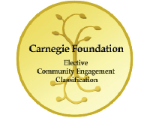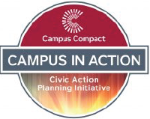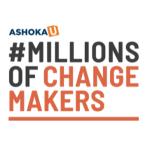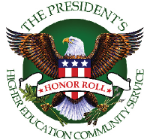Funding & Forms
Community engaged learning projects often require supplies such as food, printing, or partner thank you gifts. Juggling all the logistics of a community engagement component can be demanding. Let us take some of the burden away by providing the following types of support.
Financial Support
The following funding opportunities are available to support community partner development and service-learning projects.
Global Service-Learning Match Grant
Match grants will be awarded to student global service-learning projects with faculty/staff support where funds or in-kind donations have been appropriated or raised but where additional funds would be beneficial. The Olson Global Service-Learning match grant funds are designated to enhance global service-learning projects by providing additional funds that would otherwise not be accessible. Global service-learning at Drake is defined as the intersection of service-learning, immersion in global contexts, and intercultural education.
Examples of projects:
Your class or organization is collecting books for a local refugee organization to donate for the holidays. You have already collected 100 books with a value of $500 but would like to purchase 100 more for $500.
Your class developed a public health program abroad to educate the public on oral hygiene and are providing the participants with a hygiene kit. You have received donations of toothbrushes and other items totaling over $500, but you need an additional $500 to purchase toothpaste and floss.
Requirements:
- Funds or in-kind donations of at least $500 must have already been raised
- Projects must have a strong global service-learning emphasis
- Student applicants must have demonstrated faculty/staff support
Two grants of up to $500 will be awarded this academic year. Please note that we are NOT able to reimburse for individual’s mileage or personal costs.
Questions: Contact Amanda Martin, Community Engaged Learning Assistant Director at amanda.martin@drake.edu
.
Service-Learning Mini-Grants
A limited number of mini-grants to support academic service-learning projects are awarded on a first-come, first-served basis until the funds are expended. Mini-grants typically range anywhere from $25-200.
Mini-Grant Criteria: Application Form
-
The project/experience must fall under the definition of Community Engagement/Service-Learning as defined by the Experiential Learning Council (the project must achieve student learning and meet a community-identified need). Funds are also available for projects with a global service-learning component.
-
Projects must be completed in partnership with a community partner.
-
The project/experience must be completed within the fiscal year that funds are requested.
-
An application must be submitted, including a budget to articulate how the funds will be used.
-
Critical Reflection must be a component of the experience.
-
Grant recipients must submit a final report/reflection.
-
Original receipts for the expenses need to be submitted to the Office of Community Engaged Learning & Service within 2 weeks of the project completion date.
Application Review Process:
Applications will be reviewed on a rolling basis by the Community Engaged Learning Council. It is highly encouraged you submit your application at least 30 days in advance of the activity taking place to ensure the committee has time to review and ask questions if necessary. No funding will be granted after an activity has occurred. The funding will be granted on a first-come, first-serve basis until all funding has been expended for the year.
Reporting:
As a part of the critical reflection process, participants of the experience should put together a blog post that details the project, its impact, student learning and reflection, quanitifiables, testimonials, and photos. The blog post will be shared on the Community Engaged Learning blog and may be further shared across the campus and community to share the story of community engaged learning. The blog post should be submitted to Amanda Martin, Assistant Director, at amanda.martin@drake.edu, no later than three weeks after the project concludes.
Questions?
Check out the FAQs or contact Amanda Martin, at amanda.martin@drake.edu or x2767.
Coffee Cards
Bringing a community partner to campus? Say thank you with a Sodexo coffee card. To request this support email mallary.allen@drake.edu with the date of your partner's visit, the course they are attending, and purpose of their visit. Take this time to review successes, challenges, and plans moving forward!
Donation Requests
Have a Community Partner or their clients visiting your class? Or perhaps your students are serving with an afterschool program. We have a limited supply of "swag" reserved to support community engagement efforts and want to help you provide a small token of appreciation and Drake pride (e.g. Drake mug, t-shirts, small frisbees, etc). Email amanda.martin@drake.edu or mallary.allen@drake.edu for more info.
- Athletics Swag- The Drake Athletics Department will fulfill requests for charitable donations when possible. Please visit their Charitable Donations Request page for more information.
- Food Items- Sodexo will fulfill requests for food donation on a case by case basis. To request food donation for your event or program please contact Sodexo staff.
All CEL Experiences
All students participating in a community-based learning experience need to submit an Experiential Learning Agreement & Waiver prior to the start of their project. Emergency contact information is stored in Banner, please make sure it is up to date. In the event of an emergency, public safety will be able to retrieve student emergency contact information from Banner.
Experiential Learning Agreement & Waiver
An email with student contact and emergency contact information will be compiled and emailed to the instructor of record. Additionally, faculty should collect information on where and when students will be serving at their community agency and email the information to the Office of Community Engaged Learning at mallary.allen@drake.edu.
IF Driving:
Any student or faculty/staff member wishing to drive a group as part of a University-related event or project must complete a Motor Vehicle Report Request (MVR) every 12 months. If you are driving your own vehicle, you must ALSO complete the Personal Vehicle Release section of the form. The Personal Vehicle Release should be submitted each time you are driving your personal vehicle for University Business.
Motor Vehicle Report Request
For Field Trips & one-time Group Travel:
In addition to students completing the Experiential Learning Waiver above, all community engaged learning field trips, whether required class trips or voluntary, should have a trip information and roster form and itinerary on file. These forms allow the University to know who is traveling and when in the event of an emergency.
-
Trip Information and Roster - Risk Mitigation and Trip Travel Form
-
Additional Participant Roster form(+30) - Risk Mitigation Additional Participants
-
Incident Report - Incident Report (for reporting incidents that occur on a trip)
Bike
With four stations close to campus the Des Moines BCycle is an option.
Thanks to the Drake Bike Library, all Drake students, faculty, and staff are able to borrow a bicycle free of charge. The library is open March-October and located in front of Olmsted Student Center. Riders must present their Drake ID to the Gloria Lawless Student Life Center in exchange for the bike, helmet, and bike lock. Bikes must be returned by midnight the same day.








